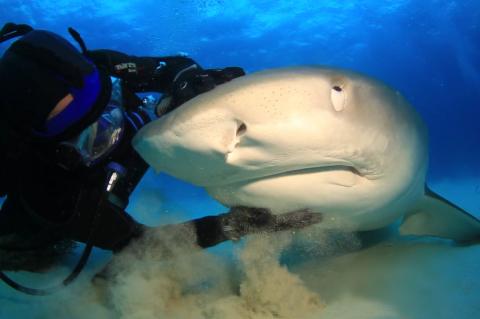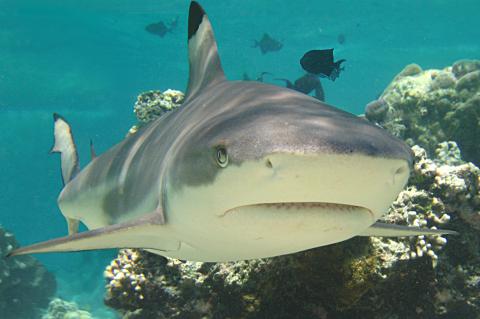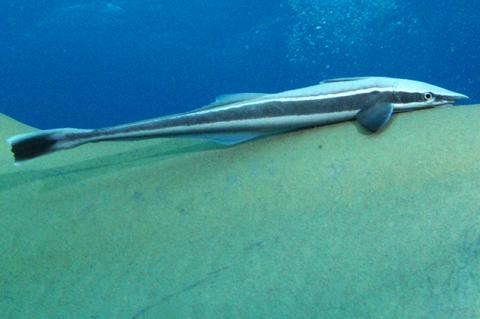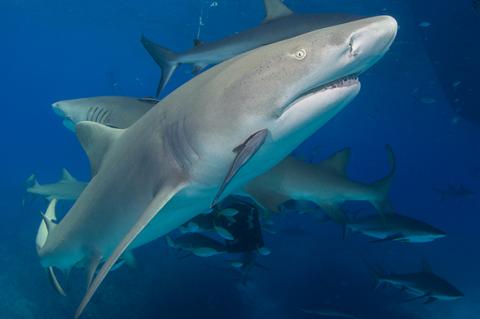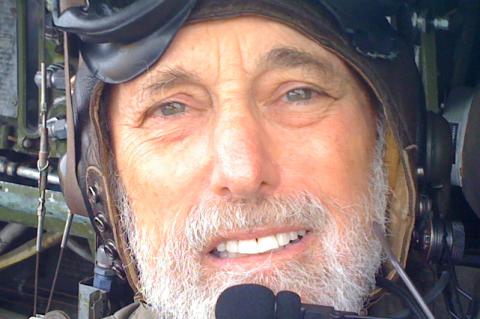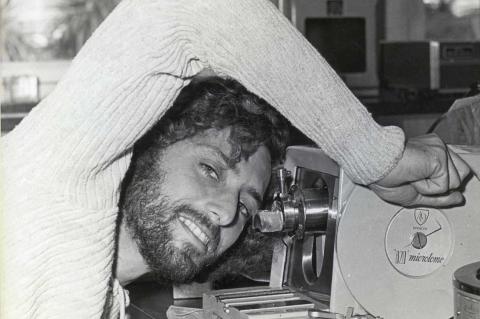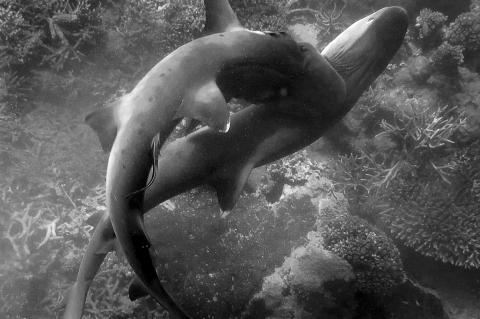Sharks: Turning Fear into Love
A new style of shark dive has been developed by Jim Abernethy, of Scuba Adventures in Florida. In a dramatic demonstration that “shark huggers” are right, all his guests do with the sharks now is to stroke them! Jim was the pioneer who first demonstrated the peaceful way that sharks will interact with divers, especially when their curiosity has been aroused through the offer of a snack.
These days, Jim offers his guests the opportunity to learn how to befriend a wild shark during their visit to Tiger Beach.

